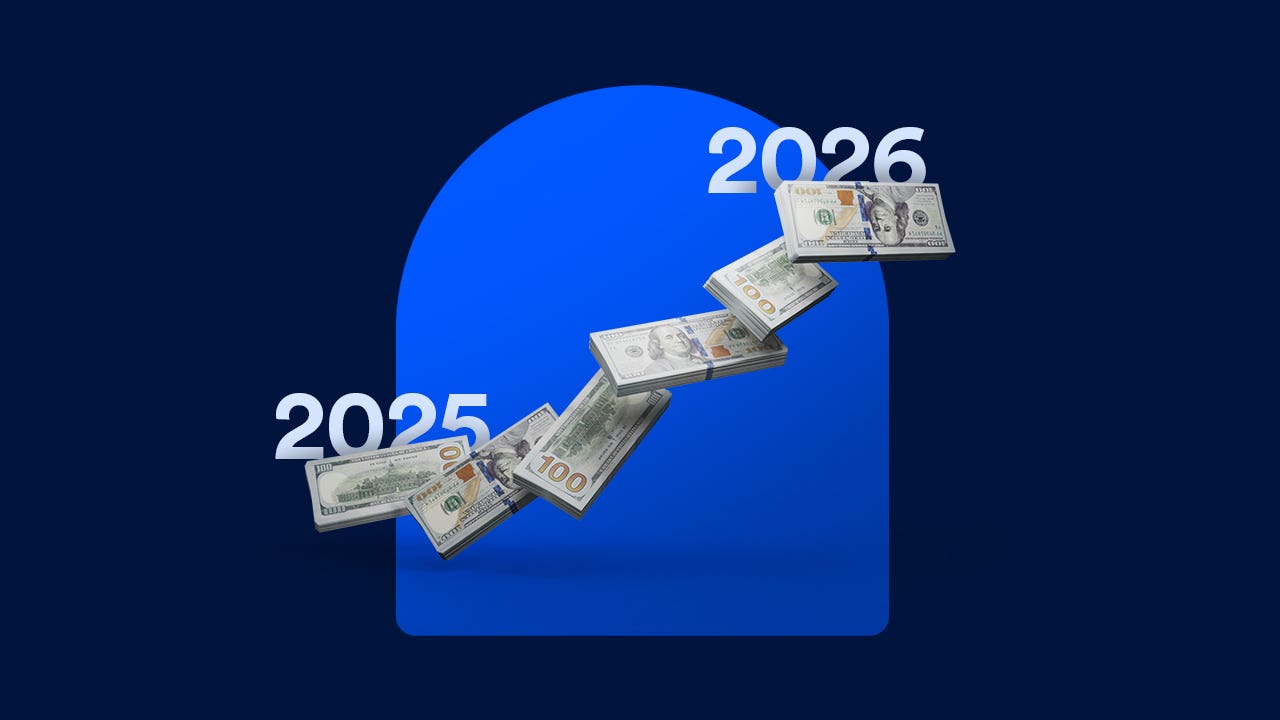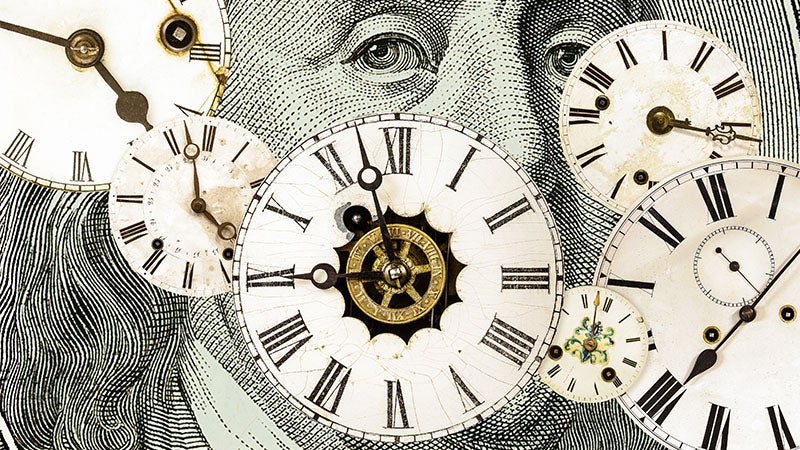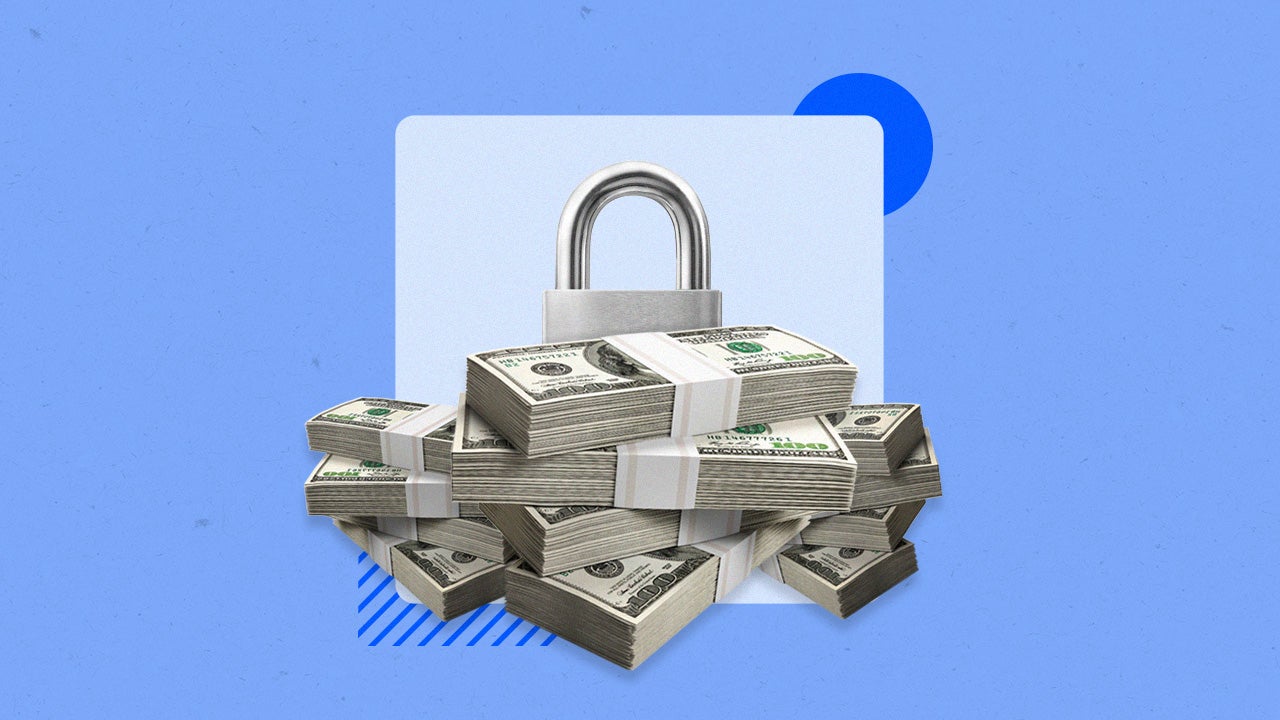Here’s how much investing $10,000 in a CD right now could earn you in 1 year

Key takeaways
- Having $10,000 in a CD that earns a 4% annual percentage yield (APY) would earn around $400 in interest in one year.
- This is more than two times the $193 you’d earn with $10,000 in a one-year CD that earns the national average of 1.93% APY.
- Meanwhile, large brick-and-mortar banks commonly offer low rates, of around 0.01%, which would earn you $1 in interest a year with a balance of $10,000.
One benefit of a certificate of deposit is that you can calculate up front how much interest you’ll earn by the time it matures, thanks to its fixed rate of return. If you put in $10,000 in a one-year certificate of deposit (CD) that earns a competitive 4% annual percentage yield (APY), you’ll earn around $400 in total interest.
That rate is more than double the national average rate, and it’s over 100 times greater than rock-bottom rates commonly offered by large banks.
Here we’ll compare what you can earn right now with a one-year CD that pays a competitive rate, one that earns the national average rate, and one that earns a rate commonly paid by big brick-and-mortar banks.
| Type of 1-year CD | Typical APY | Interest on $10,000 after 1 year | Total value of CD with $10,000 opening deposit after 1 year |
|---|---|---|---|
| CDs that pay competitive rates | 4.00% | $400 | $10,400 |
| CDs that pay the national average | 1.93% | $193 | $10,193 |
| CDs from big brick-and-mortar banks | 0.01% | $1 | $10,001 |
Competitive CD rates and the national average rate may change. Rates are accurate as of Dec. 8, 2025.
Bankrate’s CD calculator is a good way to figure out how much you’ll earn with a CD and it simply requires you to input the CD’s APY, the term length and the amount of your opening deposit.
Competitive 1-year CD rates
It’s still possible to find banks that pay 4% on one-year CDs. A one-year CD with a $10,000 opening deposit that earns a competitive APY of 4% would be worth around $10,400 when it matures in 12 months’ time.
- Type of account: 1-year CD
- Opening deposit: $10,000
- APY: 4%
- Total interest after 1 year: around $400
- Total value of CD after 1 year: around $10,400
National average 1-year CD rates
The national average APY for a one-year CD is 1.93 percent, based on Bankrate research, as of Dec. 8, 2025.
If you deposited $10,000 into a one-year CD that pays this national average rate of 1.93 percent, in one year it would be worth a total of around $10,193.
- Type of account: 1-year CD
- Opening deposit: $10,000
- APY: 1.93%
- Total interest after 1 year: around $193
- Total value of CD after 1 year: around $10,193
1-year CD rates from big banks
Large brick-and-mortar banks are known for commonly offering rock-bottom yields. For example, you’ll currently earn an APY of 0.01% from Chase on any standard CD term. That APY on a one-year CD in which you’ve deposited $10,000 will earn around $1 in interest.
- Type of account: 1-year CD
- Opening deposit: $10,000
- APY: 0.01%
- Total interest after 1 year: around $1
- Total value of CD after 1 year: around $10,001
How CD rates work
Most CDs pay a fixed rate that remains the same throughout the duration of the term, which can make them a good option in a falling rate environment.
The rate you get when you open one depends on a number of factors. CDs from competitive banks may correlate with the federal funds rate, rates offered by competitors and whether the bank is in need of deposits.
If you believe rates will be rising, you might want to wait to open a CD. A competitive high-yield savings account that makes it possible to withdraw the funds anytime may be a better choice in a rising rate environment.
Withdrawing funds early from most CDs will result in an early withdrawal penalty, which can be costly since you’ll lose your interest and maybe even some of your principal. Only put money away you’re sure you won’t need during the CD’s term.
Alternatives to 1-year CDs
If you want to explore alternatives beyond a one-year CD, you have options.
Savings accounts
Money set aside for emergency savings or other purchases you intend to make soon are better off in a high-yield savings account. These accounts allow you to withdraw money anytime without penalty (although some banks limit the number of withdrawals or transfers per statement cycle).
A savings account gives you liquidity but doesn’t come with a guaranteed yield like a CD.
Money market accounts
Another possible alternative to a one-year CD is a money market account. Like savings accounts, money market accounts don’t require you to lock in your funds for a set amount of time. They also often come with a debit card and check-writing privileges.
CDs with other term lengths
Banks commonly offer CDs with terms between three months and five years, though some go up to ten years. Compare rates across CD terms. But know that even though a six-month CD or a one-year CD may have a higher APY than a five-year CD, you’ll earn more in interest the longer you leave your money deposited. Use a CD calculator to get the full comparison of what you’ll earn in different timeframes.
Opening a CD ladder is an option if you want to benefit from some long-term fixed rates while also having access to a portion of your funds sooner. For this strategy, you’ll open multiple CDs with different maturity dates — such as terms of one, two, three, four and five years — and reinvest (or use) the money when each matures.
Bottom line
One-year CDs can be a good place to keep money you won’t need for a year, and they offer rates that are guaranteed.
Shopping around at different banks that offer one-year CDs can help you find the best APY. The most competitive rates are often found at online banks, which commonly pay yields exponentially higher than the ones earned from big brick-and-mortar banks.
Why we ask for feedback Your feedback helps us improve our content and services. It takes less than a minute to complete.
Your responses are anonymous and will only be used for improving our website.







